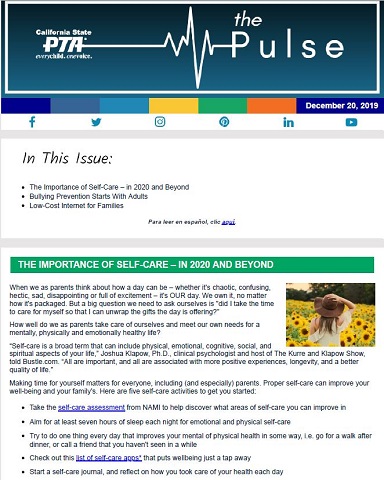This August 2022 webinar focused on the importance of sleep for our teens. It also explained the law, under Senate Bill 328 (2019), requiring later start times for middle and high schools which goes into effect in the 2022-23 school year. Featured speakers included California State Senator and SB 328 bill author Anthony Portantino and Lisa Lewis, author of The Sleep-Deprived Teen: Why Our Teenagers Are So Tired, and How Parents and Schools Can Help Them Thrive. Learn more about the “myths” and the scientific facts surrounding teens’ sleep circadian rhythms.
RESOURCES
PTA members, parents and caregivers are encouraged to watch the video of this webinar to learn more about the importance of teen sleep and how it relates to school start times.
Watch the video from the Teens and Sleep Webinar.
Additional resources for PTA Leaders are available on the Leaders Website.
Leaders Website Login Button
This webinar was sponsored by the California State PTA Family Engagement, Education, and Health and Community Concerns Commissions.


